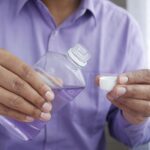What Are Dental Crowns?
Dental crowns are caps that are put on top of broken or decayed teeth by your Easton PA dentist. Additionally, when fillings fail to remedy the issue, crowns are utilized to preserve, cover, and restore the contour of your teeth. Metals, porcelain, resin, and ceramics are all options for dental crowns. Our dental care Easton PA team explains that they usually don’t need any extra attention over time, except maintaining proper dental hygiene.
What To Know About Dental Crowns
Damage to your teeth can occur over time. This may occur for a number of causes, including dental decay, trauma, or regular usage. Your teeth’ form and size might deteriorate. Dental crowns are tooth-shaped “caps” that fit over your natural tooth. Consider it a tight cap for your teeth. The crown improves the form, size, strength, and look of the tooth. The dental crown is a cap that is placed by emergency dentist 18042 and covers the visible section of your tooth and is cemented into place.
Why Would I Need A Crown?
You may need a dental crown for several reasons, including:
- Protecting a weak tooth (possibly from decay) from breaking or keeping the weak tooth together if parts of it are cracked.
- Restoring a broken tooth or a severely worn down tooth.
- Covering and supporting a tooth with a large filling and not much tooth remaining.
- Holding a dental bridge in place.
- Fixing misshapen or severely discolored teeth.
- Covering a dental implant.
- Covering a tooth that’s been treated with a root canal.
What Are Onlays And 3/4 Crowns?
Onlays and 3/4 crowns are dental crowns that don’t cover as much of your underlying tooth as traditional dental crowns. A conventional crown will cover your entire tooth. Onlays and 3/4 crowns may be appropriate when you still have a solid tooth structure. In this procedure, your dentist removes the affected area and reshapes the tooth to receive the crown.
What Are Crowns Made Of?
Different materials can be used to make dental crowns. These materials can include:
- Metal
- Porcelain-fused-to-metal
- All-resin
- All-ceramic or all-porcelain
- Pressed ceramic
How Is My Tooth Prepared For A Crown?
Firstly, you will typically have two visits to the dentist to prepare for a dental crown. In some cases, you may have a dental crown made in your dentist’s office.
The First Visit
During the first visit, the tooth that will receive the crown is examined and prepared. X-rays are taken of the tooth and the bone around it. In addition, your dentist might have to do a root canal treatment before your dental crown procedure if there’s any:
- Tooth decay.
- Risk of infection.
- Injury to the tooth’s pulp.
Pulp is the soft tissue inside your teeth that contains blood vessels, nerves, and connective tissue.
Then, the tooth receiving the crown will be filed down across the top and sides. This will make space for the crown itself. So, all-metal dental crowns are thinner and don’t need as much of the tooth removed as all-porcelain or porcelain-fused-to-metal crowns. If too much of your tooth is missing — due to damage or decay — a filling material can be used to “build up” enough tooth structure for the crown to cover, states our friend Dr. Green, dental office Parker CO.
After reshaping the tooth, a paste or putty is used to make a copy. As follows, this is also called an impression, and it is made for the tooth that will receive the crown. Impressions of the teeth above and below the tooth that’s getting the dental crown will also be made. Also, this is done to ensure that the crown will not affect your bite.
Also, the laboratory makes the crowns and usually returns them to the dentist’s office for two to three weeks. During this first office visit, your dentist will make a temporary crown to cover and protect the prepared tooth. This will happen while you’re waiting on the permanent crown.
The Second Visit
At the second visit, the permanent crown is placed on your tooth. Then, the temporary crown is removed, and the fit and color of the permanent crown are checked. If everything is okay, a local anesthetic (“numbing” drug) is sometimes used to numb the tooth, and the new crown is permanently cemented in place.
Same-Day Crowns
Dental crowns can also be made in a dentist’s same day crowns College Hill PA office if your dentist has the equipment. This process starts similarly to the traditional way a crown is made — the first steps are to remove decay and shape the tooth for a perfect fit inside the dome. After these steps, the actual making of the crown is different. The computer’s software creates a 3D model of the tooth from these pictures. Also, the digital design is then sent to another in-office machine that carves the shape of the crown. Then, in less than 15 minutes, the crown is ready to be cemented into place.
What Problems Can Develop?
There are several issues that you might experience over time with your crown, including:
- Discomfort or sensitivity
- Chipped crown
- Loose crown
- Crown falls off
- Allergic reaction
- Dark line on crowned tooth next to the gum line
How Long Do Crowns Last?
On average, dental crowns last between five and 15 years. However, the life space of a crown can depend on the amount of “wear and tear” the crown is exposed to, how well you follow oral hygiene practices and personal mouth-related habits. As follows, mouth-related habits can include things like:
- Grinding or clenching your teeth.
- Chewing ice.
- Biting your fingernails.
- Finally, using your teeth to open packaging.
Does A Crowned Tooth Require Special Care?
Lastly, a crowned tooth doesn’t need any special care. However, the underlying tooth still needs to be protected from decay or gum disease. Because of this, you should continue to follow good oral hygiene practices. These practices include brushing your teeth twice a day and flossing once a day — especially around the crown area where the gum meets your tooth. Also, avoid biting on hard surfaces with porcelain crowns (for example, chewing ice or popcorn hulls) to prevent cracking the porcelain.
Want to learn more about what are dental crowns? Contact our office today!



